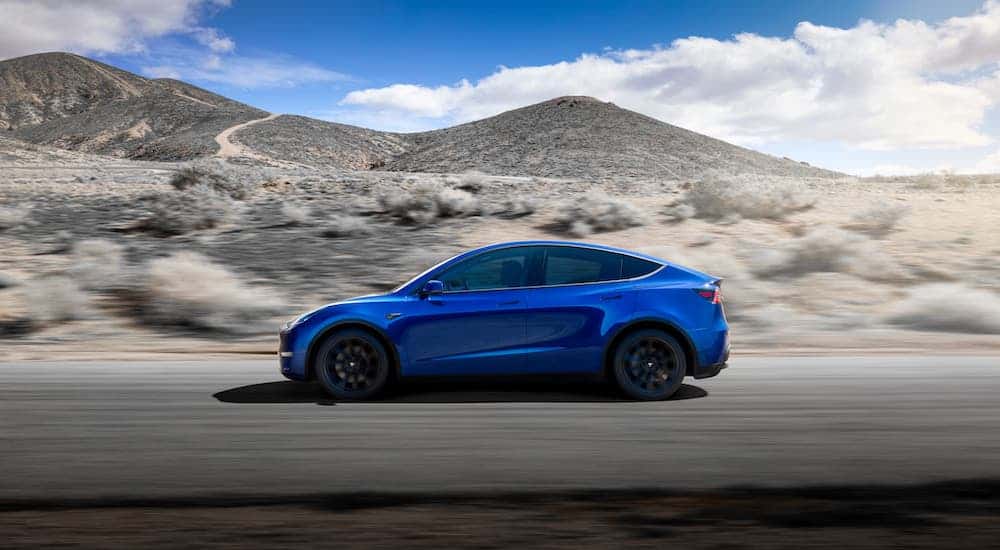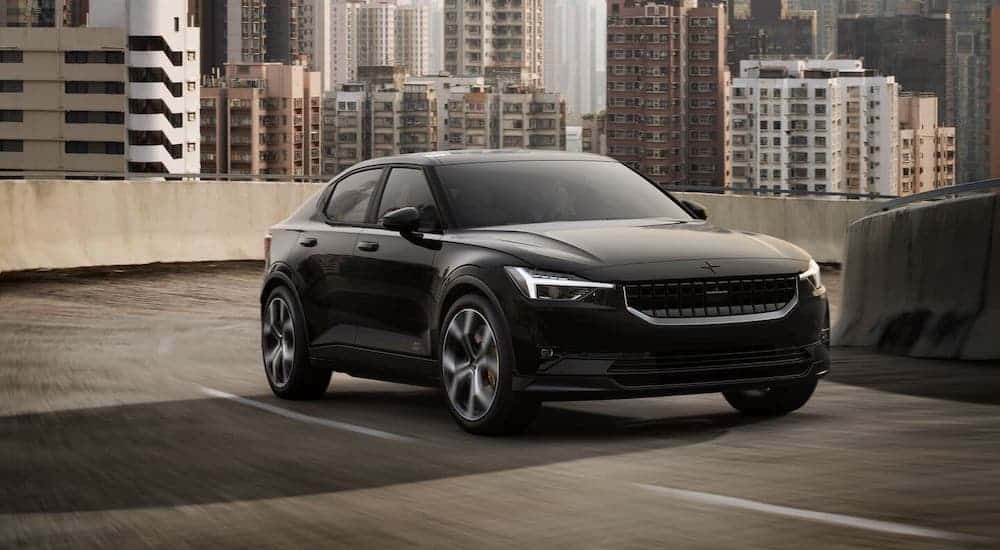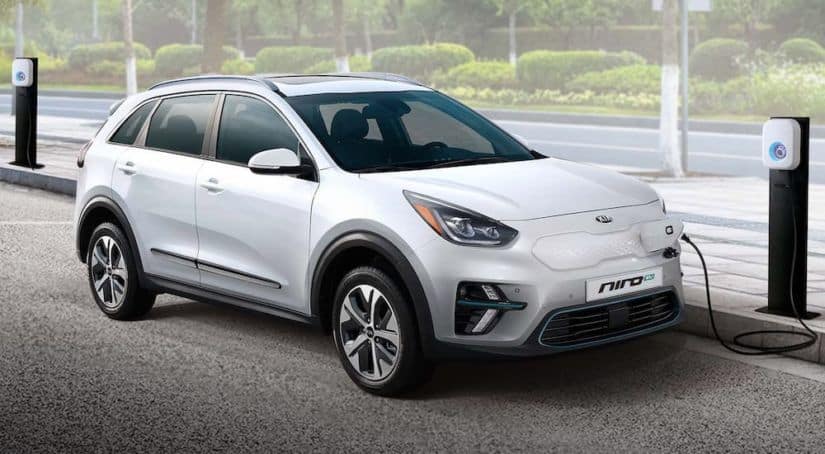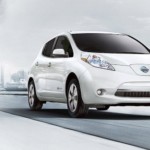The electric vehicle (EV) market has exploded in the past couple of years, with numerous manufacturers now offering EVs that can actually compete with traditional internal combustion engine (ICE) vehicles. Nearly all of the new vehicles have ranges well over 200 miles, speed and acceleration that matches V6 or larger ICE offerings, and are offered in good-looking traditional body styles instead of odd wedge shapes.
For 2020 we can expect no fewer than six affordable new long-range EVs from a variety of both well-established and relatively new manufacturers. The majority of these will be compact crossover SUVs, although a pickup truck and a sporty liftback sedan are also in the cards. However, for the sake of brevity (and because the average driver will be unable to afford them), we will not be covering the upcoming supercars like the Porsche Taycan or Tesla Roadster.
Korean Practicality
Unknown to many, Kia (and its related company Hyundai) is quietly becoming an EV powerhouse. The Kia Niro EV was released without much fanfare for the 2019 model year, making it among the first electric SUVs with over 200 miles of range. The incredible value of the Niro EV was immediately demonstrated by the near simultaneous releases of the Jaguar I-PACE and Audi E-Tron––both of which were far more expensive cars with significantly less range.
For this year, Kia is expanding its EV lineup with the 2021 Soul EV. Although there is already a Soul EV on the market, it is an underpowered vehicle and has a range of only 111 miles. The new 2021 Soul EV is a complete redesign that will share a drivetrain and battery with the existing Niro EV. The range of the new Soul EV will be 243 miles, although performance is still somewhat sedated (at least by EV standards). But the biggest draw of the Soul EV will be its price, which will almost certainly be less than the $38,500 starting MSRP of the Niro EV. Unfortunately, like the Niro EV, the 2021 Soul EV will continue to be sold in just 12 states.
American Excellence

But if Kia is not your style (or if you live in one of the 38 states that will not get the Soul EV), the undisputed champion of EVs is also set to release its affordable electric compact SUV in the coming months. Based on the highly successful Tesla Model 3 sedan, the base model of the Model Y will boast an incredible range of 315 miles and a zero to sixty speed of 4.8 seconds. Finally, it will also have an optional third-row for a total of seven seats.
However, the cost of the Model Y is commensurate with its performance, and preorders are currently going for $52,990. Still, when you consider that the Model Y will offer similar performance to the $55,900 BMW X3 M40i, that price tag starts to look like a rather good deal––especially when you consider that the BMW averages 23 MPG and requires premium fuel for an EPA estimated gas bill of $2,000 a year, while the Tesla does not even need oil changes.
The Electric Pony Car
However, Tesla no longer has a monopoly on fast EVs. Not only will the much-hyped Porsche Taycan be challenging the Tesla Model S for the title of fastest production EV, but the new Ford Mustang Mach-E will be competing with the Model Y for the sporty electric SUV market. Although often criticized by Mustang enthusiasts for being an SUV rather than an electric muscle car, the Mach-E is advertised as having a “mid-3 second” zero to sixty time for its top trim that should stack up well against the Model Y Performance.
Unfortunately, also like Porsche, Ford could not match Tesla in both speed and range. The top Mach-E trim will only be able to go around 250 miles on a charge. And although the Premium trim will have around 300 miles of range, its acceleration will be only in the mid-5 second range. The base model Mach-E will have an MSRP of $43,895, but with only 230 miles of range and the same acceleration as the Premium trim, it is difficult to call it a performance vehicle. The higher trims will cost roughly the same as their Tesla counterparts, but given their expected lesser performance, they are really only worth it if you have to have that pony on your car.
Sweden Enters the Game
Wrapping up the year of the electric SUV, is yet another premium European model, the Volvo XC40 Recharge. This will be a battery-powered version of Volvo’s existing XC40 compact SUV and Volvo’s first EV. However, like all of the other premium European electric SUVs, the Recharge will offer an unimpressive range and a substantial price tag. The current range estimate is 248 miles on the European test––which sounds like a lot until you realize that on the stricter EPA test, it will likely be much closer to 200 miles. And although the exact MSRP has not yet been released, Volvo has announced that the XC40 Recharge will be around $55,000.
That said, the XC40 Recharge will still be a Volvo. The current ICE XC40 is an IIHS Top Safety Pick, and it has excellent driver aids and automatic crash prevention features. Volvo is also seeking to adapt its legendary safety to the EV world by isolating the flammable battery inside a “safety cage” that will protect it in the advent of a crash. In a less serious difference from the ICE XC40, the Recharge will also have a front trunk in what used to be the engine bay for additional storage.
More from Sweden

However, the XC40 Recharge will not be Volvo’s only EV offering for 2020. Polestar is Volvo’s relatively new EV marque, and the Polestar 2 will be its first production EV (the Polestar 1 is a $155,000 performance hybrid). The Polestar 2 is an attractive four-door liftback design with a range of 275 miles and a zero to sixty time of less than 4.7 seconds. With two electric motors with AWD and an optional performance pack that upgrades suspension, brakes, and wheels, the Polestar 2 looks like it will be a good sporty alternative to the Tesla Model 3. Although few details are currently available, the Polestar 2 will have a price of around $63,000 and is expected to be released before the end of 2020.
The Next Tesla?
The final and potentially most interesting EV for 2020 will be the first vehicle from the new EV startup Rivian––the R1T pickup truck. This will be the first electric pickup on the market (Tesla’s infamous Cybertruck is not expected until next year), putting Rivian in an excellent position to grow quickly. However, time will tell whether Rivian will have the same issues with hit or miss build quality and spotty dealer support that plagued early Teslas.
Still, the performance of the R1T is exceptional with a range of over 400 miles and a zero to sixty time of roughly 3 seconds (though likely not in the base trim). It is also very much a truck, with AWD, an 11,000 pounds towing capacity, and the ability to wade through water over 3 feet deep. And perhaps most importantly, it does not look like something out of Star Trek (although the headlights are somewhat odd). However, the starting price is expected to be $69,000, which is quite a risk for a brand-new vehicle from a brand-new company.



